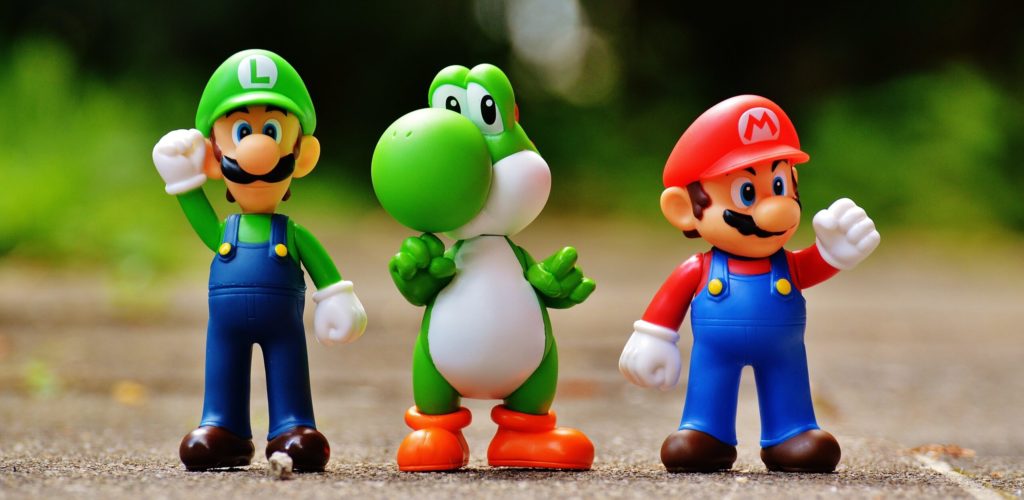This month, NDA’s dedicated Gaming Month, marks an almighty battle of the consoles. Two of gaming’s big beasts are set to launch their next-gen machines ahead of the Christmas season.
Sony Playstation5 and Microsoft’s XBox Series X will duke it out in a vintage battle of the brands at a time when consoles are enjoying an uptick in sales due to lockdown boredom. Unsurprisingly, during the first week of quarantine, video game usage surged in the US – some 75% during peak hours according to Verizon.
This is typical gamer territory: Sony and Microsoft are putting out cutting-edge devices using the very latest CPU and GPU technologies for more responsive gaming and best-in-class graphics.
And yet consoles account for the merest sliver of the gaming market – and your typical gamer is anything but. So why haven’t marketers embraced games as enthusiastically as they might?
There are spikes in interest, particularly this year as lockdowns highlight rapidly changing consumer behaviour, and phenomena such as Fortnite and earlier Pokemon Go have alighted incidental marketer interest, though advertising investment lags far behind its popularity and usage.
One reason, perhaps, is a misunderstanding of what a ‘typical’ gamer looks like. Contrary to the stereotype of the spotty teenager or middle-aged man stuck in his youth, your everyday gamer is likely to look like you or me. In fact, he (and increasingly she) is you or me, playing through our smartphones and/or platforms such as Facebook.
There are now more than 2.7 billion active gamers around the world, a billion more than five years ago, according to analytics firm Newzoo, which estimates nearly $160bn will be spent on games this year. That’s more than what people spent at the box office and on music combined in 2018.
Last year players spent 1 trillion hours playing games and 25 billion hours watching gaming streams. On average, players aged 18 to 34-years-old spent more time playing than on social media or watching TV.
Counting VR/AR and esports, the two fastest-growing segments of gaming, Newzoo predicts the market will reach 3 billion players by 2023. Yet, despite four times more time spent on games than on TV, advertisers spend 40 times less money on gaming.
Research conducted by Activision Blizzard Media shows that around one in three adults across the US, UK, France and Germany is a ‘gamer’, some 40% are women, while the average age of players is 34/35 years old. Facebook estimates the true UK figure is even higher, at 50%.
They do so, in increasing numbers and for increasing amounts of time, for fun and entertainment. They are in engaged environments yet traditionally advertisers have shied away from major investment.
Yet advances in technology, targeting and measurement mean this should be an area ripe for publisher innovation and advertiser investment, particularly as 5G technologies come on board.
Small wonder that UK trade body the IAB this year held its first gaming ‘Upfronts’. In part, it aimed to dispel some of those myths around gamers and gaming held by advertisers, agencies – and even consumers themselves.
A Facebook-commissioned survey of consumers who are into mobile gaming in EMEA revealed 70% of those who play real-time competitive games do not consider themselves ‘gamers’. And less than half of those surveyed by Activision regarded themselves a ‘gamer’. Just as a cinema-goer is not necessarily a cinephile, many of those who play games do not identify as gamers.
Grant Paterson, business director at The WPP Sports Practice, gives a clue as to why advertisers have often overlooked this growing channel. during an IAB Upfronts session with Natalia Vasilyeva, VP of marketing at Anzu.io. He said that while marketers were “cautiously curious” about gaming, there were many misconceptions to overcome – gaming and advertising had co-existed for some time but “still don’t go together hand in hand”.
In the next part of this series, we explore how and why advertisers can benefit from gaming and gamers, and ask publishers, agencies and gaming companies including Admix, Twitch, Azerion, Outplay Games to help bust the myths that still persist.










